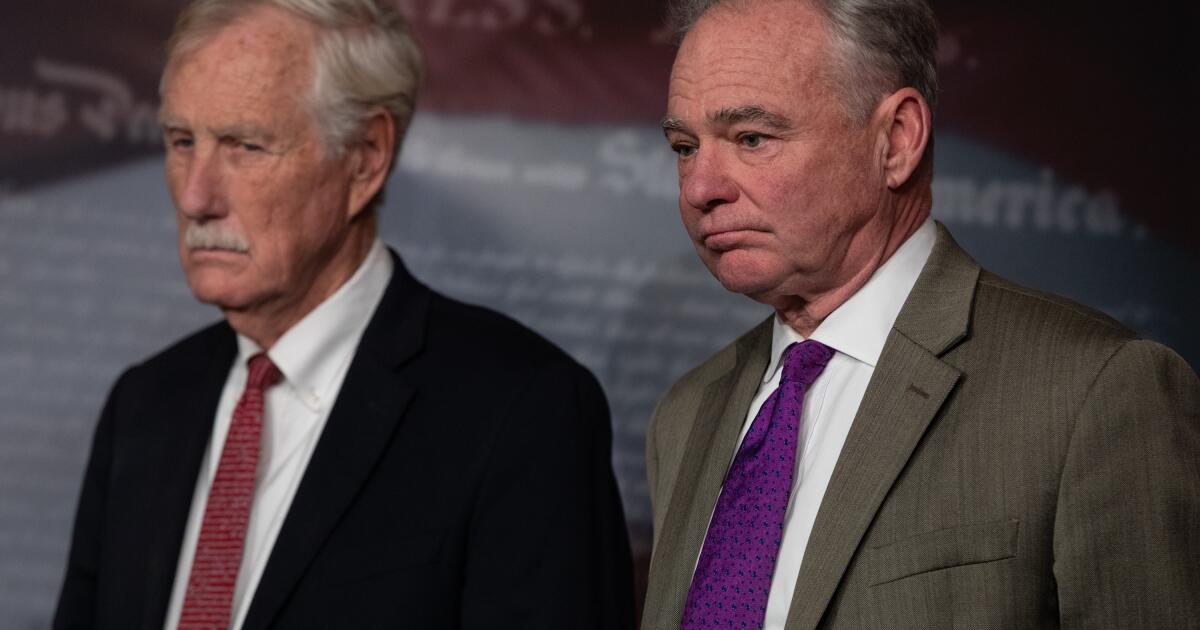Democrats crumble like cookies. Is this really the best they can do?
Democrats just crumbled like soft-bake cookies.
The so-called resistance party has given up the shutdown fight, ensuring that millions of Americans will face Republican-created skyrocketing healthcare costs, and millions more will bury any hope that the minority party will find the substance and leadership to run a viable defense against Trump.
Sunday night, eight turncoat Democrats sold out every American who pays for their own health insurance through the affordable marketplaces set up by President Obama.
As has been thoroughly reported in past weeks, Republicans are dead set on making sure that insurance is entirely out of financial reach for many Americans by refusing to help them pay for the premiums with subsidies that are part of current law, offered to both low- and middle-income families.
Republicans — for reasons hard to fathom other than they hate Obama, and apparently basics such as flu shots — have long desired to kill the ACA and now are on the brink of doing so, in spirit if not actuality, thanks to Democrats.
Trump must be doing his old-man jig in the Oval Office.
The pain this craven cave-in will cause is already evident. Rates for 2026 without the government subsidies have been announced, and premiums have doubled on average, according to nonpartisan health policy researchers KFF. Doubled.
Insurance companies are planning on raising their rates by about 18%, already devastating and symptomatic of the need for a total overhaul of our messed-up system. That increase, coupled with the loss of the subsidies beginning at the start of next year, means a 114% jump in costs for the folks dependent on this insurance. Premiums that cost an average $888 in 2025 will jump to $1,904 in 2026, according to KFF.
But it’s the middle-income people who will really be hit.
“On average, a 60-year-old couple making $85,000 … would see yearly premium payments rise by over $22,600 in 2026,” KFF warns, meaning that instead of paying 8.5% of their entire income toward health insurance, it will now jump to about 25%.
Merry Christmas, America.
While the eight Democrats who broke from their party to allow this to happen are directly responsible (thankfully our California senators are not among them), Democratic leadership should also be held accountable.
A party that can’t keep itself together on the really big votes isn’t a party. It’s a a bunch of people that occasionally have lunch together. Literally, they had one job: Stick together.
The failure of Democratic leadership to make sure its Senate votes didn’t shatter in this intense moment isn’t just shameful, it’s depressing. For all of the condemnation of the Republican members of Congress for failing to uphold their duty to be a check on the power of the presidency, here’s the opposition party rolling over belly up on the pivotal issue of healthcare.
As California Rep. Ro Khanna put it on social media, “Senator Schumer is no longer effective and should be replaced. If you can’t lead the fight to stop healthcare premiums from skyrocketing for Americans, what will you fight for?”
If the recent elections had any lessons in them, it’s that Democrats — and voters in general — want courage. Love or hate Zohran Mamdani, his win as New York City mayor was due in no small part for daring to forge his own path. Ditto on Gov. Gavin Newsom and Proposition 50.
Mamdani put that sentiment best in his victory speech, promising an age when people can “expect from their leaders a bold vision of what we will achieve, rather than a list of excuses for what we are too timid to attempt.”
Before you start angry-emailing me, yes, I do understand how much pain the shutdown in causing, especially for furloughed workers and those about to see their SNAP benefits cut off. I feel for every person who doesn’t know how they will pay their bills.
But here are the facts that we can’t forget. Republicans have purposefully made that pain intense in order to break Democrats. Trump has found ways to pay his deportation agents, while simultaneously not paying critical workers such as airport screeners and air traffic controllers, where the chaos created by their absence is both visible and disruptive. He has also threatened to not give back pay to some of those folks when this does end.
And on the give-in-or-don’t-eat front, he’s actually been ordered by courts to pay those SNAP benefits and is fighting it. Republicans could easy band together and demand that money goes out while the rest is hashed out, but they don’t want to. They want people to go hungry so that Democrats will break, and it worked.
But at what cost?
About 24 million people will be hit by these premium increases, leaving up to 4 million unable to keep their insurance. Unable to go to the doctor for routine care. Unable to pay for cancer treatments. Unable to have that lump, that pain, the broken bone looked at. Unable to get their kid a flu shot.
In many ways, this isn’t a California problem. The majority of these folks are in southern, Republican states that refused to expand Medicaid when they had the chance. About 6 in 10 subsidy recipients are represented by Republicans, according to KFF, led by those living in Florida, Georgia and Mississippi. But Americans have been clear that we want access to care for all of us, as a right, not an expensive privilege.
Which makes it all the more mystifying that Democrats are so eager to give up, on an issue that unites voters across parties, across demographics, across our seemingly endless divides.
But I guess that’s just how the cookie crumbles.
